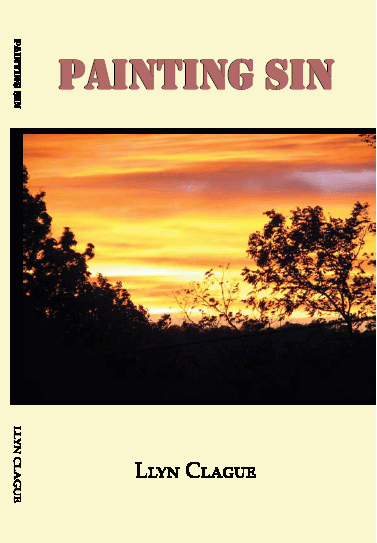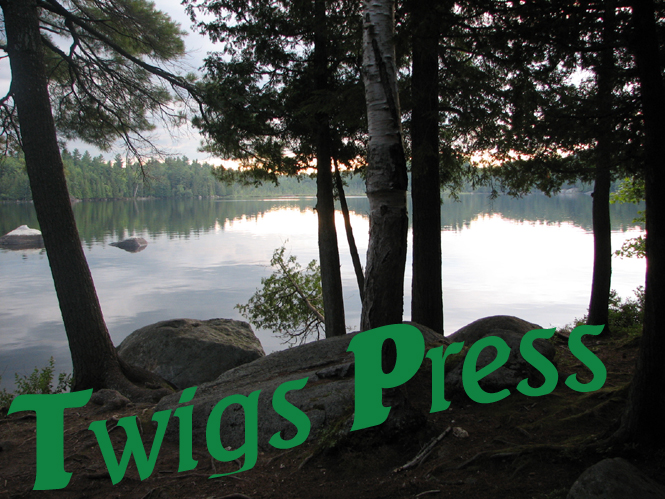Painting Sin

Reviews
In Llyn Clague’s second book of poetry, he continues the explorations begun in the first. Inward visions expand outward to include the world, the universe. He becomes Everyman, the embodiment of human fragility in a life exploded beyond our control, sharing his journey with “images, ideas, metaphors, and the hushed roar of language.”To Clague, poetry represents a new-found philosophy, a way of life, a creative process that soothes the frazzled edges of our human rat race.
Clague brings a personal touch and perspective to the everyday worries and trials all humans face on a daily basis. Love, loss, survival, politics, victories and failures, sorrow and joy are the ingredients Clague measures into his rich poetic broth. Whether his words present themselves with whispers or hushed roars, they’re well worth reading.
Review by Laurel Johnson for Midwest Book Review
Click below to read selections from Painting Sin
Painting Sin
God, what fun
painting sin –
the Breughels, father and son,
Bosch, Hieronymous, and others
known and anonymous.
Heaven, and Eden, and all that goodness
were as ordinary as an apple, but
greed! – a toad – a black, lumpy, scaly, ugly
toad clamped on a naked woman’s lovely;
gluttony – a slug-like brute
guzzling booze and meat;
or lust – merely lovers unmarried
nuzzling on a hay wagon, with a cute little demon
playing a tune on his trumpet nose –
oh what fun
painting sin.
And what fervor
depicting the fury
of hell –
a great fish-mouth swallowing a human whole
head first;
a wolf-face with fangs
and vicious, only-too-human eyes;
a corpse hanging on a gibbet against a sky
of fiery yellow;
men with muskrat heads, monsters
half-bird, half-beetle…
Ah, Pieter, father and son,
your work – didactic, symbolic,
yet so concrete, so graphic –
crackles with clarity
on the appeal, and the cost,
of the evil in the hearts of all of us,
but today we grapple with facts
uglier than any symbol –
an oven for cooking people,
a slave labor camp in Siberia,
a heavy plane killing a building.
In the face of these facts
we build ever more metal
to detect, not the evil inside,
but the threat from outside:
we fingerprint and photograph,
we search purses and pockets
and sneakers and bodily crevices –
we hunt everywhere for the weapons
we never find.
We make war on the fear
we cannot see in the mirror
and call it a war on terror;
we peer at the world over truck barriers
and call ourselves free;
we make enemies faster
than we can blast them from earth.
The smoke that rose from the chimneys of Bergenbelsen
long ago floated away on the wind;
the hands that built the barracks on the tundra
lie buried in the permafrost;
the phone call from the burning tower
plays over and over on the answering machine.
Dollar Democracy
“All the money is on one side
And all the hurt is on the other,” Elizabeth Warren said,
In testimony more poignant, yet hard,
Than I expected from a commercial law expert at Harvard.
She spoke about changes in the federal bankruptcy law
That will make it harder for many people laid low,
While protecting the rich with asset-protection trusts
And helping companies that go bust
Find friendly courts to let them stiff
Their employees and retirees without a whiff of remorse.
On one side stand the lobbying armies
Of industry and the credit card companies;
On the other, scattered platoons
Of little people in ruins.
It is a contest between David and Goliath,
A giant and a wraith,
For which the playing field is level – after all, why not? –
As each combatant fights without a slingshot.
A Question of History
Nero fiddled, so the story goes,
while Rome burned. Our politicos
squabble like toddlers without
adult supervision but
with elephantine retrovision
for bullshit and baloney,
and our executive, coddling
cronies, crazies and Cheney,
outdoes a Kafka bureaucracy
with lies, hype and hypocrisy
while not only Iraq, also America
burns.
After Nero suicided,
Rome convulsed and subsided
into ever greater decline
and eventually Italy.
Will we, after decision ’08,
re-enact Rome’s slow fate,
meeting our own auld lang syne
squabbling shrilly?
Words
Our treatment of enemy combatants triggers such a storm of rage and grief in me
that I search for an equal and opposite storm of poetry –
the ultimate art of words –
but I get stuck: words are the tools of the enemy.
Maybe even the enemy itself.
Words define human beings as outside the law.
Prison gates triggered by words clang shut,
without trial or appeal.
Words condemn men to solitary confinement,
and words count the years.
Stuck like Plum Preserves on a glass jar,
terrorist labels Ali al-Marri.
Like a papal decree excommunicating a heretic,
words put Jose Padilla, an American citizen (if that matters),
in a cell with the windows blacked out.
Words, tens of thousands of them, shout the Feds’ case against Yaser Hamdi,
while classified and secret hide words that might defend him.
2
As a child I could not find words for the little boy
guilty without trial in the family court,
without hope of appeal,
in a child’s solitary confinement.
I searched everywhere for words that would rise above rage,
assuage grief,
dissipate fear.
I found – and used – thousands,
but words, weaponized in the family wars,
won me neither victory nor peace.
The words I hurled back, in defense and to hurt,
like bullets merely chipped concrete.
The words I sought for comfort were all on the outside,
like sheets of rain on jail walls.
3
You don’t need a painful childhood to rage, and grieve,
not at how our enemies treat their enemies,
but – from Abu Ghraib to Gitmo to the Navy brig –
how we do.
And you don’t need poetry to be sick to your gut
that some people use words in the guise of reason
to cover the screams of men.
But to release a storm of poetry that rises above
the rage and, yes, the grief, we need words.
Words that comprehend the mind that writes the law,
that follow the hand that signs the order,
and see through the membrane that separates word
from consequence.
Words that forgive those people,
who know full well what they do.
And I’m still looking for them.
